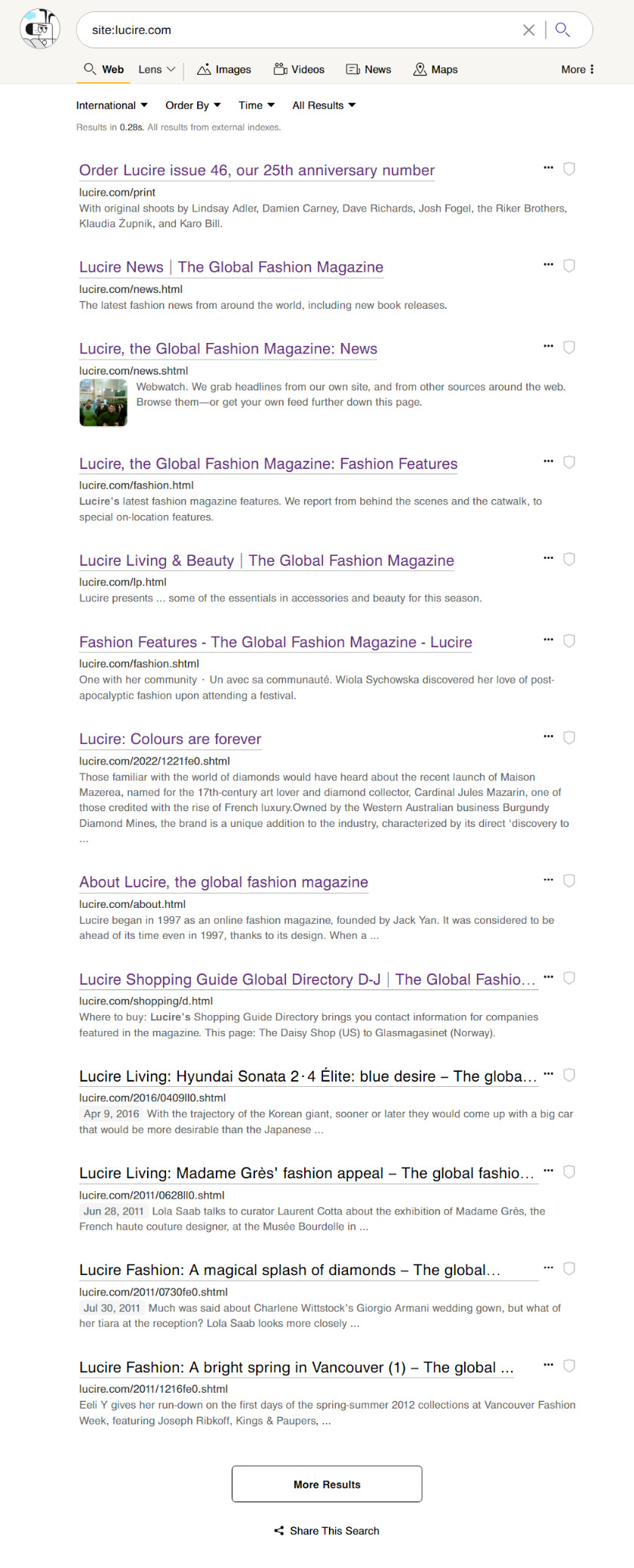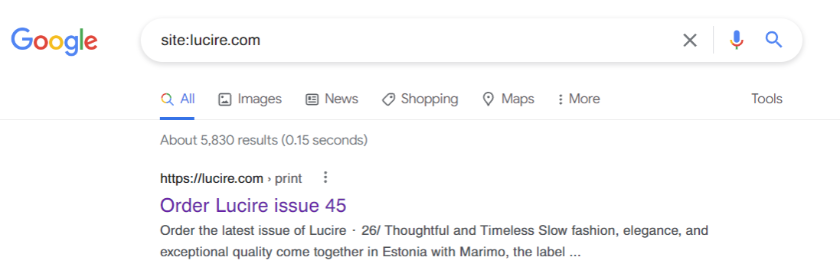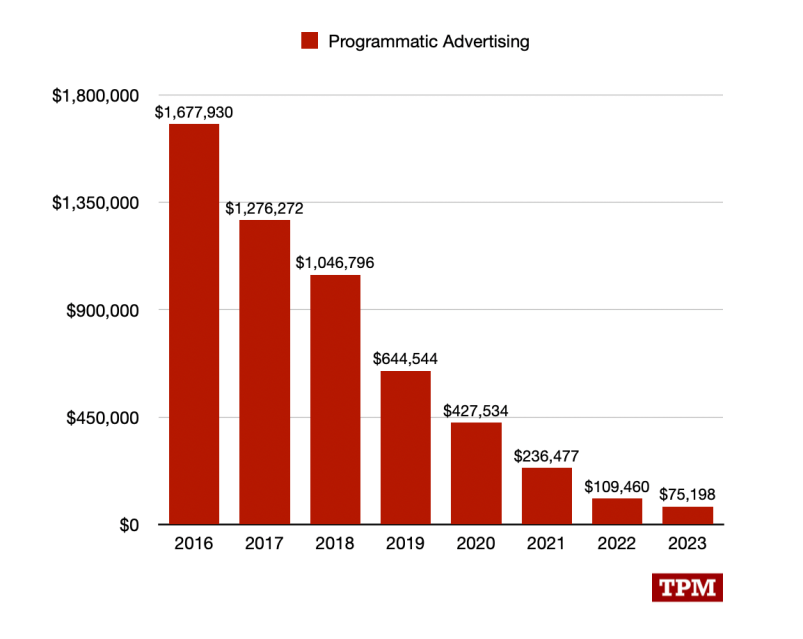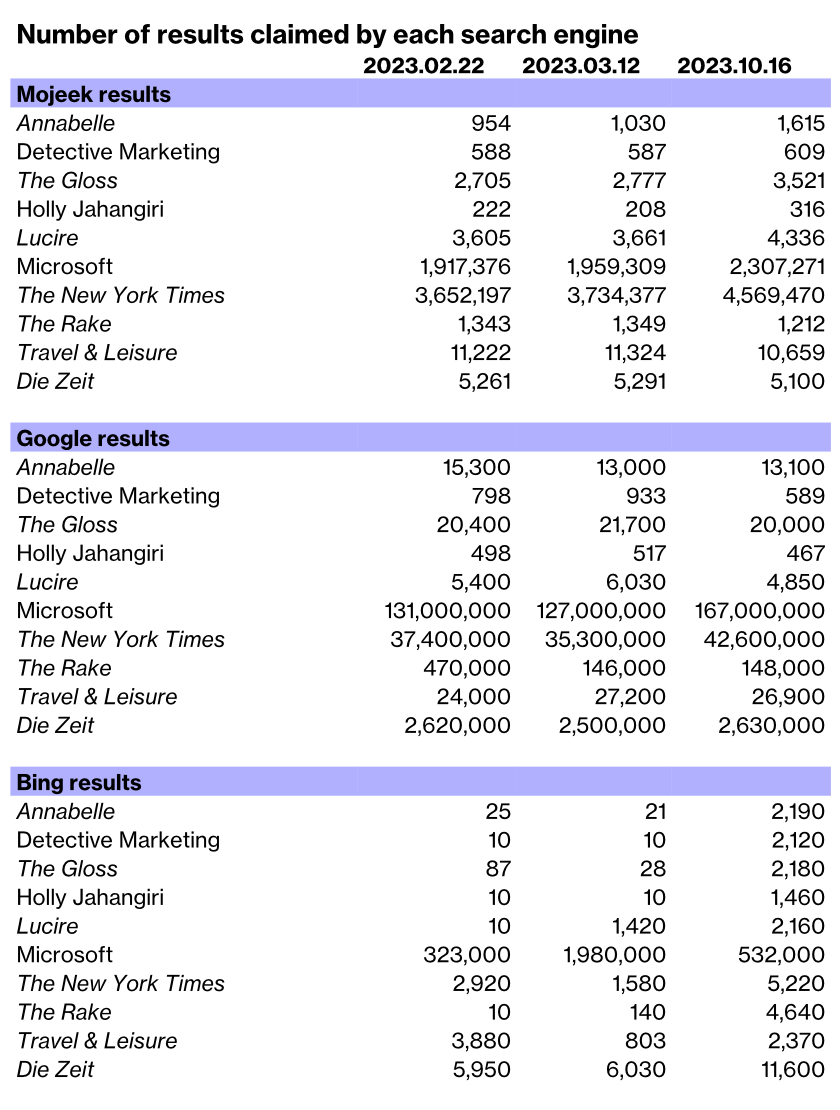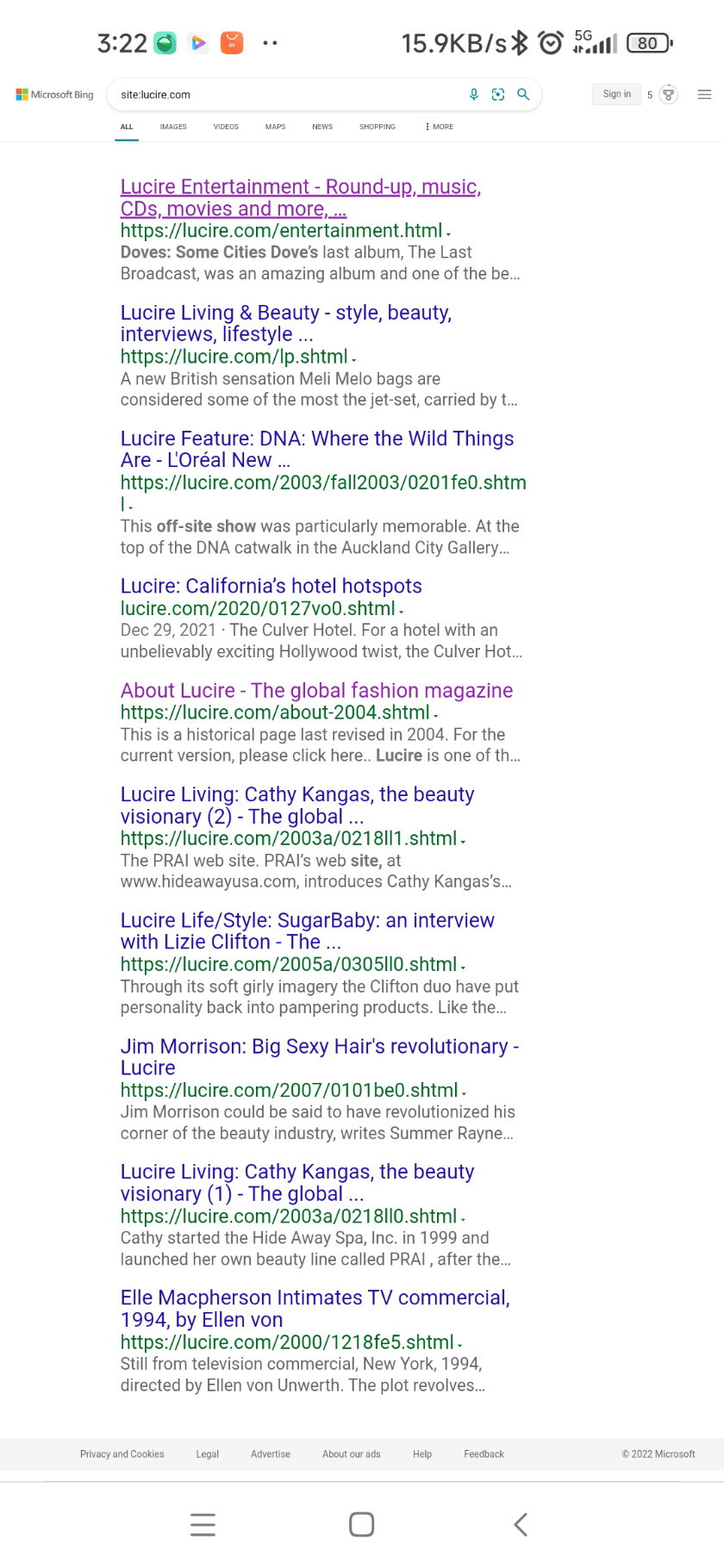The Bing collapse did lead me to look at some of the ancient pages on the Lucire site that the search engines were still very fond of. For instance, the ‘About’ page was still appearing up top, which is bizarre since we haven’t made any links to it for years—it reflected our history in 2004.
Naturally, once I updated it, it promptly disappeared from Bing! Too new for Microsoft’s own Wayback Machine!
I was always told that you shouldn’t delete old pages, and that 301s were the best solution. I’m enough of a computing neophyte to not know how to implement 301s (.htaccess doesn’t work, at least not on our set-up) and page refreshes are often frowned upon, which is why so many old pages are still there.
However, you would naturally expect that a web spider following links would not rank anything that hasn’t been linked to for over a decade very highly. If the spider comes in, picks up the latest stuff from your home page, possibly the latest stuff from individual topic pages, it would figure out what all of these were linking to, and conclude that something from 2000 that was buried deep within the site was no longer current, or of only passing interest to surfers.
I realize I’ve had a go at search engines for burying relevant things in favour of novel things, but we’re talking pages here that aren’t even relevant. ‘About’ I’ll let them have, but a 2000 book reviews’ page? A subject index page from 2005 that hasn’t been linked to since 2005, and the pages that do are well outnumbered by newer ones? Because, the deletion of ‘About’ aside, here is what Bing thinks is the most important for site:lucire.com:
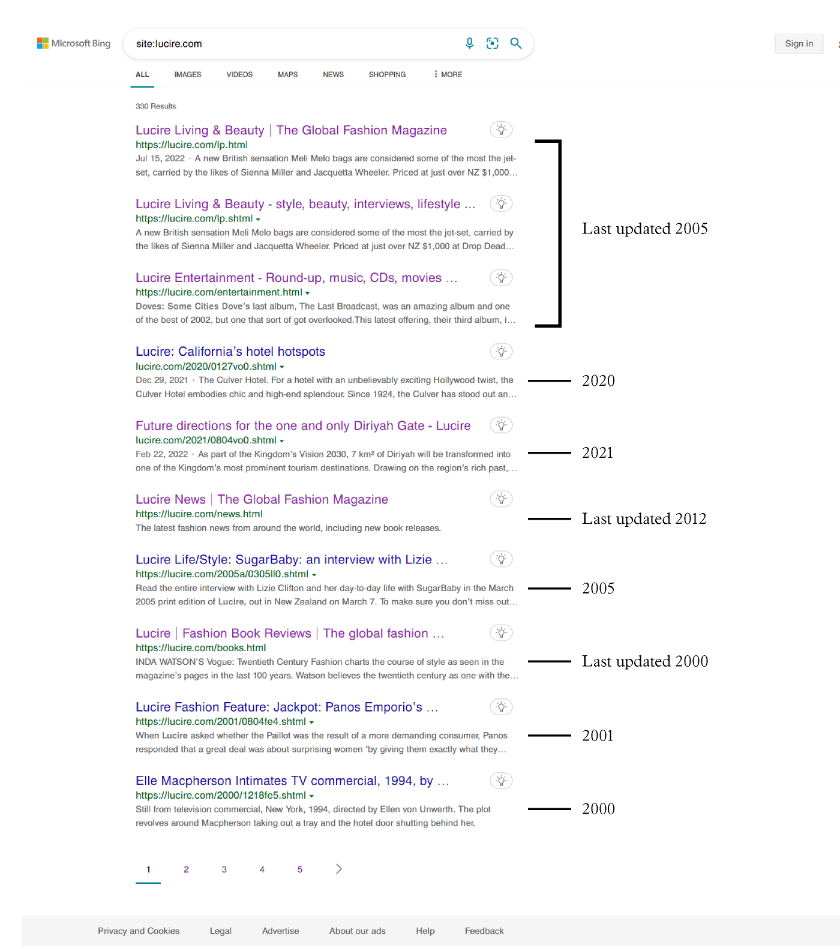
Google fares a little better. Our home page and current print edition ordering page are top, shopping is third, followed by the fashion contents’ page (makes sense). ‘About’ comes in fifth, for whatever reason, then a 2005 competition page that we should probably delete (it refreshes to another page from 2005—so much for refresh pages being bad for search engines).
Seventh is yet another ancient page from 2005, namely a frameset—which I’ve since updated so at least the main frame loads something current. The remainder are articles from 2011, 2022 and 2016. The next page comprises articles and tags, which seem to make sense.
Mojeek actually makes more sense than Google. Home page in first, the news page (the next most-updated) is second, followed by the travel contents’ page. Then there are two older print edition pages (2020 and 2012), followed by a bunch of articles (2013, 2014, 2013, 2013), and the directory page for Lucire TV. There’s nothing here that I find strange: everything is logically found by a spider going through the site, and maybe those four articles from the 2010s are relevant to the word Lucire (given that you can’t do site: searches on Mojeek without a keyword, so it repeats the word before the TLD)? The reference to the 2012 issue might be down to my having mentioned it recently during our 25th anniversary posts. But there are no refresh pages and no framesets.
Startpage, not Google, has a couple of frameset pages from 2000 and 2002 in their top 10 which again weren’t linked to, at least not purposefully (they were placed there to catch people trying to look at the directory index in the old days). There’s incredibly little “link juice” to these pages. However, ‘About’ (in 10th), and these two framesets aside, its Google-sourced results fare remarkably well. In order: home page, print edition ordering page, the two framesets, the news section, the shopping page (barely updated but I can see why it’s there), the community page, Lucire TV, the fashion contents, ‘About’.
Duck Duck Go is so compromised by Bing that it barely merits a mention here. Four pages from 2000 and 2005 that no current page links, a 404 page that we’ve never even had on our site (!), articles from 2021, 2018, 2007 and 2000 (in that order), and a PDF (!) from 2004. Fancy having a 404 that never even existed in the top 10!
If I had my way, it’d be home page, followed by the different sections’ contents’ pages, then the most popular article—though if a couple of articles go (or went) viral, then I’d expect them sooner.
Both Mojeek and Google do well here, with four of these pages each in their top 10s. But it’s Startpage’s unfiltered Google results that do best, hitting linked, relevant pages in seven results out of the top 10. Bing and its licensees miss the mark completely. If you must have a Google bias, then Startpage is the way to go; for our purposes, Mojeek remains the better option.
★★★★★★★☆☆☆ Startpage
★★★★☆☆☆☆☆☆ Mojeek
★★★★☆☆☆☆☆☆ Google
★★☆☆☆☆☆☆☆☆ Virtual Mirage
★☆☆☆☆☆☆☆☆☆ Baidu
★☆☆☆☆☆☆☆☆☆ Yandex
☆☆☆☆☆☆☆☆☆☆ Bing
☆☆☆☆☆☆☆☆☆☆ Qwant
☆☆☆☆☆☆☆☆☆☆ Swisscows
☆☆☆☆☆☆☆☆☆☆ Brave
☆☆☆☆☆☆☆☆☆☆ Duck Duck Go (would give –1 for the 404 if I could)

